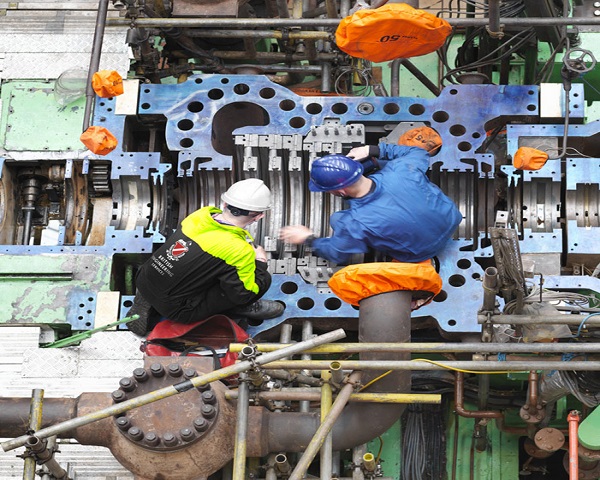
11 January 2018
Engineering Inspection Insurance
Engineering inspection of plant and machinery is essential to ensure the safety of employees and the general public. It will also ensure your business meets the statutory requirements for workplaces in the UK.
Evidence of compliance with health and safety law is very important if customers are to avoid interventions from the HSE. An engineering inspection contract helps demonstrate compliance, independence and impartiality as well as giving customers an opportunity to identify defects early, before they cause damage or harm. Matt Price, Broking Director at Ascend Broking Group explains more. It is key to ensure that your Inspection program is up to date and below we set out some examples of the most commonly inspected items, plus some that you may not have considered previously: 1. Complying with the law A number of health and safety laws exist to ensure equipment will not harm workers or the public. Collectively, this complex body of law covers all types of working equipment – be it an electrical socket, air-conditioning system or passenger lift. All businesses of all sizes will be affected in some way and many will need an engineering inspection contract. Failure to comply with these laws can attract large fines, and the most serious cases of negligence can lead to imprisonment. 2. Avoiding costly Fees for Intervention Since 2012, the Health and Safety Executive (HSE) has been able to charge Fees for Intervention (FFI). These fees are charged against any time spent or actions taken by the HSE, from the moment it identifies a material breach in health and safety legislation, to the conclusion of any investigation and/or enforcement action. With the HSE charging £124 per hour, these fees can soon add up. Health and safety law requires customers to have reasonably practicable inspection and maintenance regimes. Without evidence of such a regime, the HSE could identify a material breach and begin charging FFI. 3. Defending a claim/prosecution Even with the most rigorous inspection and maintenance regimes, accidents can happen. Should someone be injured or lose their life, this may result in a personal injury claim and/or criminal prosecution against the organisation and its directors personally. The Corporate Manslaughter law has also gathered momentum since it came into force in 2008. With the Crown Prosecution Service bringing new cases to trial each year, it is more important than ever that organisations ensure their health and safety risks are properly managed. When assessing questions of liability, the courts will look at the law and assess whether the applicable duties were met. Having the equipment in question documented as inspected regularly by a competent person or organisation can greatly increase your chances of defending a claim and/or criminal prosecution.” 4. Avoiding equipment downtime An engineering inspection contract is not just about legal compliance; it can also add huge value to a business’s operations. When equipment unexpectedly fails, a business can be faced with a period of downtime while it is repaired or replaced. This can eat into profit margins through lost production, repair/replacement costs and hire charges. Regular inspections can identify potential issues before they lead to equipment breakdown/malfunction, giving organisations the opportunity to conduct planned maintenance at a time that suits them. What needs to be inspected? Some common items that require inspection are: Passenger and goods lifts Fork lift trucks Dock levellers Spray booths Vehicle ramps Electrical installations Exhaust and ventilation equipment Pressure plant And below are some examples of equipment that may not necessarily spring to mind when considering your engineering inspection program: Infrequent inspections can, in extreme cases, lead to serious corrosion and a potential explosion, and depending on the size of the pressure unit, the Pressure Systems Safety Regulation (PSSR) may stipulate how regularly inspections need to be conducted. Coffee machine steam boilers Air conditioning Refrigeration units To find out more or if you require an overview of your requirements, please contact Matt Price, Broking Director Ascend Broking Group Ltd 01245 449 062 matt.price@ascendbrokingold.co.uk
Tags:ascend insurancebusiness insurancebusiness insurance quotationchelmsford brokerChelmsford insurance brokerCommercial insuranceconstructionConstruction insuranceCourier insurancedirectors liabilityEssex insurance brokerexecutiveHaulage fleetHaulage liabilityHaulage motor fleet insurancehouseholdhseHSE insuranceinspectioninspection quoteLocal insurance brokermanufacturing insuranceMarine CargoMotor fleet insuranceProfessional indemnity
Recent Posts
Ascend Broking
ASCEND BROKING GROUP LAUNCHES ASCEND RISK
Ascend Broking





